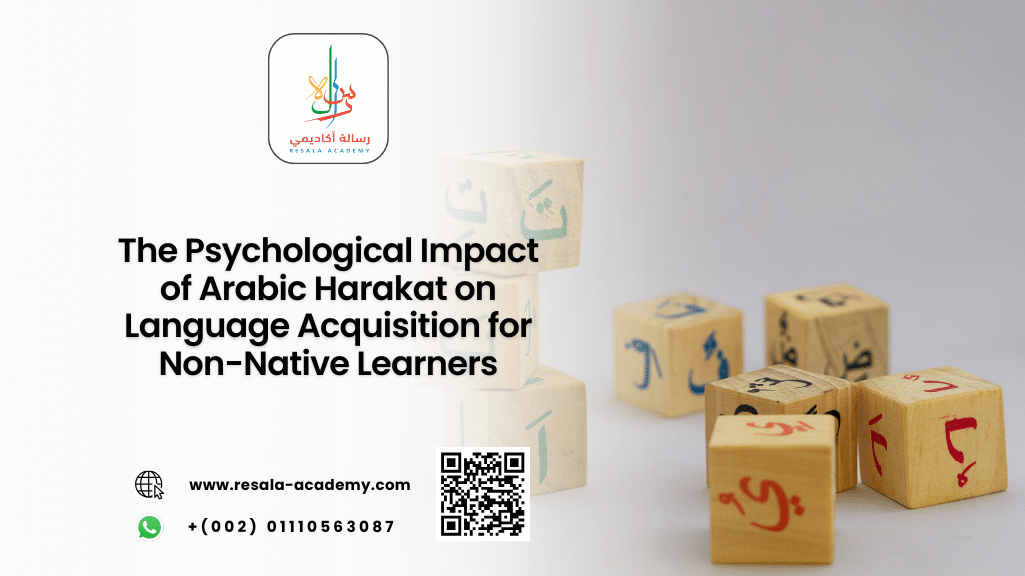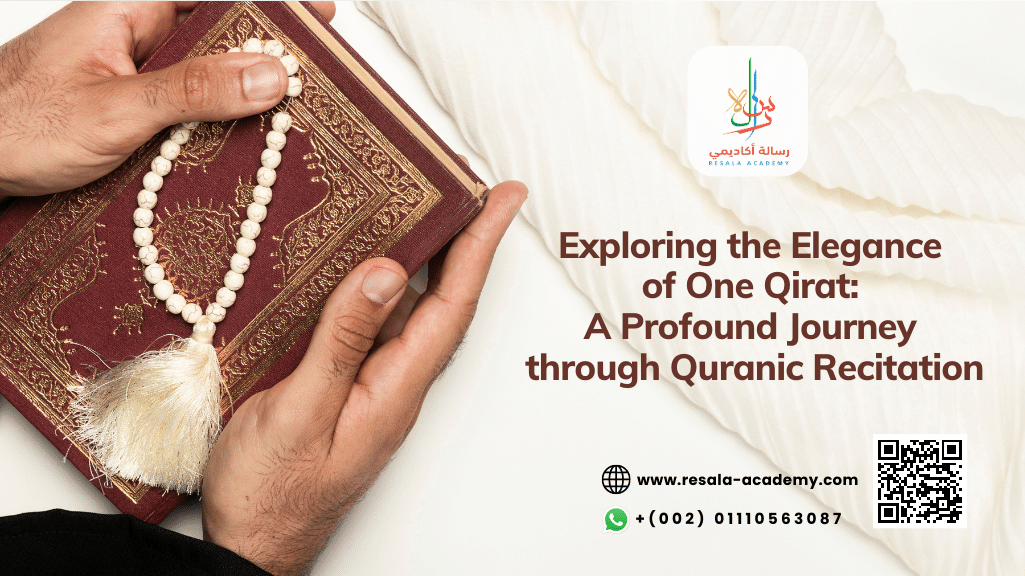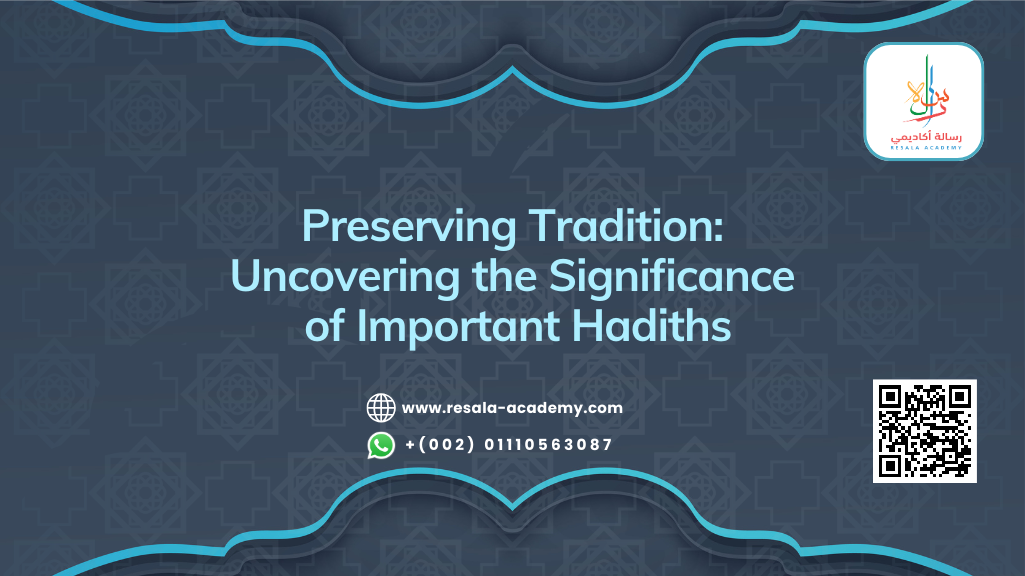Table of Contents
The Psychological Impact of Arabic Harakat on Language Acquisition for Non-Native Learners
Arabic is a rich and complex language, known for its deep historical roots and intricate linguistic structure. One of the most distinctive features of Arabic is its Harakat, or diacritical marks, which play a crucial role in pronunciation, meaning, and fluency.
For non-native learners, mastering Arabic Harakat is essential for accurate reading and comprehension. In this article, we will explore the psychological impact of Arabic Harakat on language acquisition, particularly for non-native speakers.
We will discuss how these diacritical marks influence cognitive processing, pronunciation accuracy, and overall learning efficiency. Additionally, we will highlight the role of Resala Academy, an online platform dedicated to teaching Arabic and Quran to non-native learners.
Understanding Arabic Harakat
What Are Arabic Harakat?
Arabic Harakat (حركات) are diacritical marks placed above or below letters to indicate short vowels, pronunciation, and grammatical functions. Unlike English, where vowels are explicitly written, Arabic primarily relies on Harakat to clarify pronunciation.
The main Harakat include:
- Fatha (ـَ): Represents a short “a” sound.
- Kasra (ـِ): Represents a short “i” sound.
- Damma (ـُ): Represents a short “u” sound.
- Sukun (ـْ): Sukoon Arabic indicates the absence of a vowel.
These diacritical marks are crucial for non-native learners, as they help decode words and understand meaning accurately.
The Psychological Impact of Arabic Harakat on Language Acquisition
1. Enhancing Pronunciation and Phonemic Awareness
One of the biggest challenges for non-native learners is mastering Arabic pronunciation. Since Arabic has unique phonemes not found in many other languages, Harakat serves as a guide to correct pronunciation.
Studies in psycholinguistics suggest that visual cues, such as diacritical marks, enhance phonemic awareness. When learners see Harakat, they can mentally process the correct pronunciation, reducing errors and improving fluency.
- For example, the word قلب (heart) can be mispronounced as قُلْب (Qulb) instead of قَلْب (Qalb) without the correct Harakat. This minor difference can lead to miscommunication.
2. Cognitive Load Reduction
Cognitive load theory suggests that learners process information more efficiently when visual aids are present. Arabic Harakat acts as scaffolding, helping learners decode words without excessive mental effort.
By using Harakat, learners can:
- Recognize words faster
- Reduce pronunciation errors
- Improve reading fluency
This is particularly beneficial for beginners who struggle with Arabic script.
3. Memory Retention and Word Recognition
Memory plays a crucial role in language acquisition. Harakat helps in word recognition by providing visual cues that reinforce correct pronunciation.
According to cognitive psychology, learners retain information better when it is visually distinct. Harakat serve as mnemonic devices, making it easier to remember words and their meanings.
For example, the word كتب (wrote) can be read as:
- كَتَبَ (Kataba) – He wrote
- كُتِبَ (Kutiba) – It was written
- كُتُب (Kutub) – Books
Without Harakat, learners may struggle to distinguish between these meanings.
4. Motivation and Confidence Boost
Language anxiety is a common issue among non-native learners. Many students feel overwhelmed by Arabic script, leading to low confidence.
However, when learners use Harakat, they experience less frustration and greater motivation. This psychological boost encourages them to:
- Read more confidently
- Engage in conversations
- Develop a positive attitude toward learning Arabic
5. Facilitating Quranic Studies
For students learning Quranic Arabic, Harakat is indispensable. The Quran is written in Classical Arabic, where diacritical marks ensure correct recitation.
A famous verse highlighting the importance of correct pronunciation is:
وَرَتِّلِ الْقُرْآنَ تَرْتِيلًا
“And recite the Quran with measured recitation.”
Incorrect pronunciation can alter the meaning of Quranic verses, making Harakat essential for Tajweed (proper recitation).
The Role of Arabic Harakat in Developing Reading Comprehension for Non-Native Learners
Enhancing Word Recognition:
- Arabic Harakat provides visual clarity, helping learners distinguish between similar-looking words that have different meanings.
- By associating diacritical marks with specific phonetic patterns, students can decode unfamiliar vocabulary more efficiently.
Improving Sentence Structure Understanding:
- Harakat indicates grammatical roles, ensuring that learners grasp the correct syntax of Arabic sentences.
- Without Harakat, non-native learners may struggle to differentiate between verbs, nouns, and adjectives, leading to misinterpretation of texts.
Boosting Fluency in Silent and Oral Reading:
- Harakat acts as a guides for pronunciation, enabling learners to read aloud with confidence and natural intonation.
- Studies show that visual aids, such as diacritical marks, significantly improve reading speed and comprehension accuracy.
Arabic Harakat as a Cognitive Tool for Faster Language Retention
Strengthening Memory and Recall:
- Harakat serves as a mnemonic aid, reinforcing word patterns and making it easier for learners to retain vocabulary.
- Research in cognitive linguistics suggests that visual markers improve long-term retention by activating multiple areas of the brain.
Reducing Learning Anxiety and Increasing Motivation:
- Non-native learners often experience frustration when encountering unvoweled Arabic texts. Harakat provides a sense of structure, reducing language anxiety.
- As learners gain confidence in pronunciation, they become more motivated to engage in conversations and reading exercises.
Facilitating Faster Mastery of Quranic Arabic:
- Quranic Arabic relies heavily on Harakat to ensure correct recitation and spiritual accuracy.
- By mastering Harakat, students can understand Quranic verses with greater clarity, enhancing their spiritual connection and linguistic proficiency.
Struggling with pronunciation as a non-native speaker? Discover how phonetics plays a crucial role in the best Quran memorization course to help you recite with accuracy and confidence!
How Resala Academy Helps Non-Native Learners Master Arabic Harakat
If you are a non-native learner struggling with Arabic pronunciation, Resala Academy is the perfect solution. This online academy specializes in Arabic and Quran classes, offering structured online Arabic courses that focus on Harakat, Tajweed, and fluency development.
Why Choose Resala Academy?
- Expert Instructors – Native Arabic speakers with years of teaching experience.
- Interactive Lessons – Engaging, student-friendly methods for easy learning.
- Personalized Feedback – One-on-one guidance to improve pronunciation.
- Flexible Schedules – Learn at your own pace, anytime, anywhere.
- Quranic Studies – Master Tajweed and Quran recitation with precision.
Join Us today and take your Arabic learning journey to the next level!
Frequently Asked Questions (FAQs)
1. What are Arabic Harakat, and why are they important?
Arabic Harakat are diacritical marks that indicate short vowels and pronunciation. They are essential for non-native learners to read and pronounce Arabic words correctly.
2. Can I learn Arabic without Harakat?
While advanced learners may read Arabic without Harakat, beginners rely on them for proper pronunciation and word recognition.
3. How does Harakat help in Quranic recitation?
Harakat ensures correct pronunciation of Quranic verses, preventing misinterpretation and maintaining the original meaning of the text.
4. How long does it take to master Arabic Harakat?
The time varies depending on practice and learning methods. With structured courses like those at Resala Academy, learners can master Harakat in a few months.
5. Where can I find courses to learn Arabic Harakat?
You can enroll in Resala Academy, an online platform offering Arabic and Quran classes for non-native speakers.
Conclusion
Arabic Harakat plays a crucial role in language acquisition, particularly for non-native learners. They enhance pronunciation, reduce cognitive load, and boost confidence in reading and speaking Arabic.
For those looking to master Arabic Harakat, Resala Academy offers expert-led courses that simplify the learning process. Whether you are learning Arabic for communication, Quranic recitation, or academic purposes, mastering Harakat will significantly improve your fluency.
Start your Arabic learning journey with Resala Academy today!




